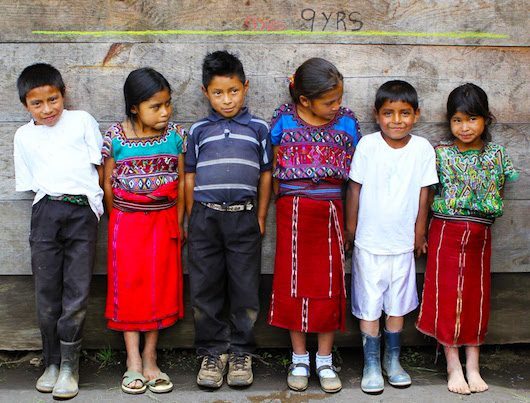KUALA LUMPUR, Feb 19 — No single country is adequately protecting children’s health, their environment, or their future, a report by child and adolescent health experts found.
The report, “A Future for the World’s Children?”, stated that the health and future of every child and adolescent is under immediate threat from ecological degradation, climate change and exploitative marketing practices that push heavily processed fast food, sugary drinks, alcohol, and tobacco at children.
The report, which includes a new global index of 180 countries, was released today by a commission of over 40 experts, which was jointly convened by the World Health Organization (WHO), Unicef, and general medical journal The Lancet.
“Despite improvements in child and adolescent health over the past 20 years, progress has stalled, and is set to reverse,” warned Helen Clark, former prime minister of New Zealand and co-chair of the commission.
Clark noted that around 250 million children under five years old in low- and middle-income countries are at risk of not reaching their developmental potential, based on proxy measures of stunting and poverty.
“But of even greater concern, every child worldwide now faces existential threats from climate change and commercial pressures,” she said in a statement in conjunction with the report’s release.
Countries need to overhaul their approach to child and adolescent health, she said, to ensure that “we not only look after our children today but protect the world they will inherit in the future.”
The report compared performance on “child flourishing”, including measures of child survival and well being, such as health, education, and nutrition; sustainability, with a proxy for greenhouse gas emissions; and equity, or income gaps.
The top 10 countries for child flourishing are Norway, South Korea, the Netherlands, France, Ireland, Denmark, Japan, Belgium, Iceland and the United Kingdom, while African countries dominate the bottom of the list.
Interestingly, the top 10 countries on the sustainability index, which surveyed CO2 emissions, are African nations: Burundi, Chad, Somalia, Congo, the Central African Republic, Malawi, Rwanda, Mali, Niger and Madagascar, while Australia, the United States, Saudi Arabia, and Qatar are among the ten worst emitters.
According to the report, while the poorest countries need to do more to support their children’s ability to live healthy lives, excessive carbon emissions – disproportionately from wealthier countries – threaten the future of all children.
“If global warming exceeds 4°C by the year 2100 in line with current projections, this would lead to devastating health consequences for children, due to rising ocean levels, heatwaves, proliferation of diseases like malaria and dengue, and malnutrition,” Unicef said.
The only countries on track to beat CO2 emission per capita targets by 2030, while also performing fairly (within the top 70) on child flourishing measures are: Albania, Armenia, Grenada, Jordan, Moldova, Sri Lanka, Tunisia, Uruguay, and Vietnam.
The report also found that harmful marketing directly impacted children, with Australian children and adolescents, for instance, exposed to 51 million alcohol advertisements during one year of televised football, cricket, and rugby. This is despite industry self-regulation.
“Children’s exposure to commercial marketing of junk food and sugary beverages is associated with purchase of unhealthy foods and overweight and obesity, linking predatory marketing to the alarming rise in childhood obesity,” Unicef said.
The public health agency also noted that the number of obese children and adolescents increased from 11 million in 1975 to 124 million in 2016 – an 11-fold increase, with dire individual and societal costs.
WHO director-general Tedros Adhanom Ghebreyesus said the report shows that the world’s decision makers are, too often, failing today’s children and youth and their health, rights, and their planet.
“This must be a wakeup call for countries to invest in child health and development, ensure their voices are heard, protect their rights, and build a future that is fit for children,” he said.
The commission authors recommended that countries stop CO2 emissions with the utmost urgency, enact new policies and investment in all sectors to work towards child health and rights, and tighten national regulation of harmful commercial marketing.








